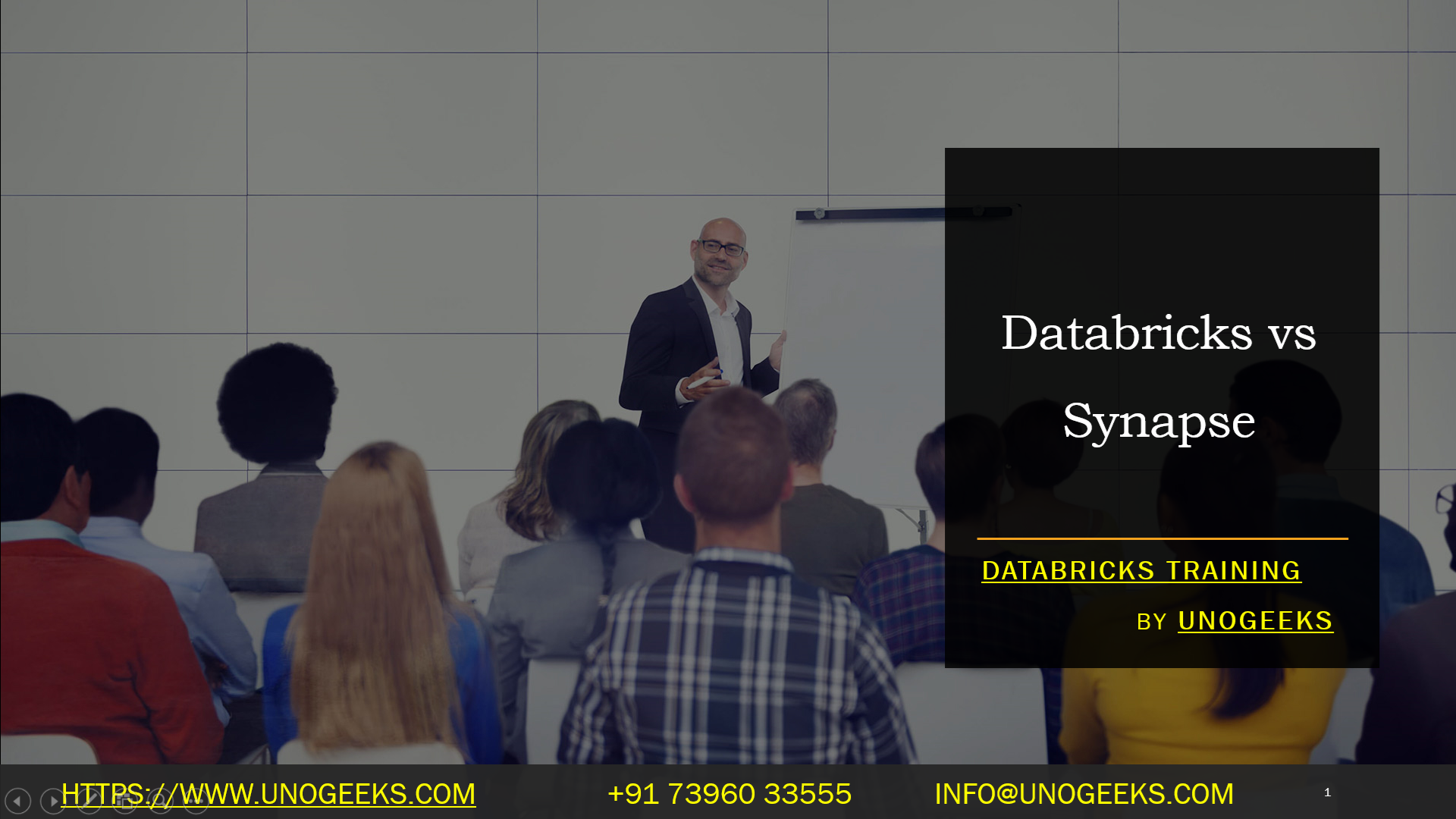Databricks vs Synapse
Databricks vs Synapse
Choosing between Databricks and Synapse can be complex, as both platforms offer potent features for big data and analytics. To help you make an informed choice, let’s explore their strengths, weaknesses, and ideal use cases.
Azure Databricks: The Data Scientist’s Powerhouse
- Strengths:
- Spark Optimization: Unmatched performance for large-scale data processing and machine learning tasks due to its optimized Apache Spark engine.
- Collaborative Notebooks: Ideal for data science teams with real-time collaboration and seamless code sharing.
- Machine Learning Ecosystem: Robust environment for developing, training, and deploying machine learning models with integrated MLflow for experiment tracking and model management.
- Open-Source Integration: Easy integration with popular open-source libraries and tools like TensorFlow, PyTorch, and scikit-learn.
- Weaknesses:
- Cost: This can be relatively expensive, especially for smaller workloads or teams.
- Learning Curve: Requires some familiarity with Apache Spark and its ecosystem.
- Less Focus on BI: While it integrates with Power BI, it’s primarily designed for something other than traditional business intelligence reporting.
- Ideal Use Cases:
- Large-Scale Data Science: When dealing with massive datasets and complex machine learning models.
- Collaborative Data Teams: For projects requiring seamless collaboration among data scientists and engineers.
- Real-Time Analytics: When low-latency processing of streaming data is essential.
Azure Synapse Analytics: The Unified Analytics Powerhouse
- Strengths:
- Unified Platform: Combines data warehousing, data lake, and big data processing in a single environment.
- Enterprise Data Warehousing: Powerful SQL engine for large-scale analytics and reporting.
- Serverless and Dedicated Options: Flexible deployment options to match your workload and budget.
- Rich BI Integration: Seamless integration with Power BI and other Microsoft BI tools for visualizing and sharing insights.
- Code-Free ETL/ELT: An intuitive visual interface for data integration that is accessible to non-technical users.
- Weaknesses:
- Spark Limitations: The integrated Spark environment may not be as optimized as Databricks for some workloads.
- Complex Setup: The unified nature of the platform can make initial setup and configuration more complicated.
- Cost: The cost can escalate quickly, especially with heavy usage of dedicated SQL pools.
- Ideal Use Cases:
- Enterprise Analytics: When you need a comprehensive data warehousing, reporting, and analytics platform.
- BI and Reporting: For organizations heavily relying on Power BI or other Microsoft BI tools.
- Mixed Workloads: When dealing with diverse workloads requiring batch and real-time processing.
Making the Decision
Ultimately, your best choice depends on your specific needs and priorities. Consider the following questions:
- What are your primary workloads? Data science and machine learning or traditional BI and reporting?
- How important is collaboration for your team? Do you need real-time collaboration in notebooks?
- What is your budget? Are you willing to invest in a more expensive, specialized platform like Databricks?
- What is your existing infrastructure? Do you already use other Azure services that could integrate well with Synapse?
Databricks Training Demo Day 1 Video:
Conclusion:
Unogeeks is the No.1 IT Training Institute for Databricks Training. Anyone Disagree? Please drop in a comment
You can check out our other latest blogs on Databricks Training here – Databricks Blogs
Please check out our Best In Class Databricks Training Details here – Databricks Training
Follow & Connect with us:
———————————-
For Training inquiries:
Call/Whatsapp: +91 73960 33555
Mail us at: info@unogeeks.com
Our Website ➜ https://unogeeks.com
Follow us:
Instagram: https://www.instagram.com/unogeeks
Facebook:https://www.facebook.com/UnogeeksSoftwareTrainingInstitute
Twitter: https://twitter.com/unogeeks
